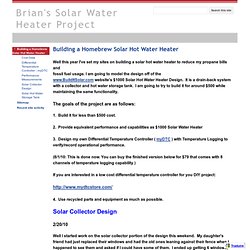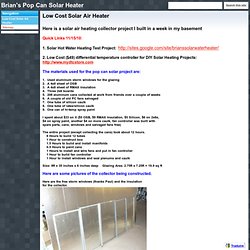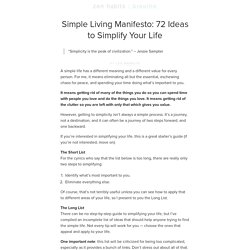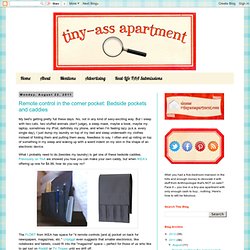

Bicycle Touring Around the World: Going Slowly. D.light. Brian's Solar Water Heater Project. Unfortunately, there was only a few 5 minute periods of sunny on the most cloudy day.

I managed to get it up to about 145F in about 5 minutes before it got cloudy. Will run this on my diffferential temperature controller next weekend and take some thermal recordings of units performance. One thing I noticed is that some of the staples that were holding the flashing flat pulled loose when it got hot, so I will need to add a few more staples to secure the flashing. I also need to add some insulation to the back and sides. Lastly it seems like if it get set on or near the ground, a white / reflective footing might help increase the incident light on the collector.
Well, that's it for now. 3/24/10 I ran it for a day connected to my homemade temperature controller. The temperature probes on T3 and T4 were unconnected and have bogus readings. Saved! Here is a workup of the cost of this solar collector (includes costs to build two of them). Brian's Pop Can Solar Heater. Quick Links 11/15/10: 1.

Solar Hot Water Heating Test Project: 2. Low Cost ($49) differential temperature controller for DIY Solar Heating Projects: materials used for the pop can solar project are: 1. I spent about $33 on it ($5 OSB, $9 RMAX Insulation, $5 Silicon, $6 on 2x6s, $4 on spray paint, another $4 on more caulk, fan controller was built with spare parts, cans, windows and salvaged fans free)The entire project (except collecting the cans) took about 12 hours. 6 Hours to build 12 tubes 1 Hour to construct box 1.5 Hours to build and install manifolds 0.5 Hours to paint cans 1 Hours to install and wire fans and put in fan controller 1 Hour to build fan controller 1 Hour to install windows and seal plenums and caulkSize: 8ft x 35 inches x 6 inches deep Glazing Area: 2.75ft x 7.25ft = 19.9 sq ft Here are some pictures of the collector being constructed. Here are the free storm windows (thanks Paul) and the insulationfor the collector. Here's whats done so far. Google Spreadsheet.
Dacha Project. You are here: Home » ABOUT The Dacha Project, founded in 2008, is a do-it-yourself, egalitarian and educational homestead.

We are comprised of six friends and an extensive circle of supporters and community members. Situated on 16 acres in Finger Lakes region of New York, we have built an off-the-grid, earth-bermed, solar-passive house, powered by active solar and a diesel generator converted to run on waste vegetable oil. In addition, we built, or rather sculpted, a straw-bale cottage, planted a fruit and nut tree orchard, and are ever-expanding our gardens. We are almost entirely owner built, with innovative designs for our energy, heating, water, waste and agriculture systems. Simple Living Manifesto: 72 Ideas to Simplify Your Life. “Simplicity is the peak of civilization.” – Jessie Sampter By Leo Babauta A simple life has a different meaning and a different value for every person.

For me, it means eliminating all but the essential, eschewing chaos for peace, and spending your time doing what’s important to you. It means getting rid of many of the things you do so you can spend time with people you love and do the things you love. Tiny-Ass Apartment: August 2011. We have a new employee over at the party planning business, and I just love her.

She and her boyfriend are from 'round these parts, but are moving back to the Bay Area after living in another part of the state, and her tales of searching for an apartment have been really... sad. Good apartments are hard to come by these days, and the few that do become available are descended upon by hordes of eager renters like buzzards on roadkill. There were apartments she saw that were snatched up by someone else within mere hours of their listing. While this tough competition might be just a part of your usual San Francisco existence, it's becoming more common across the country as a result of the economic downturn.
Says Phil Villarreal on The Consumerist, "Although the depressed housing market has made things easy for home buyers, it seems to have had an adverse effect on renters, who face more competition with perhaps fewer openings than ever. Tiny-Ass Apartment: August 2011.